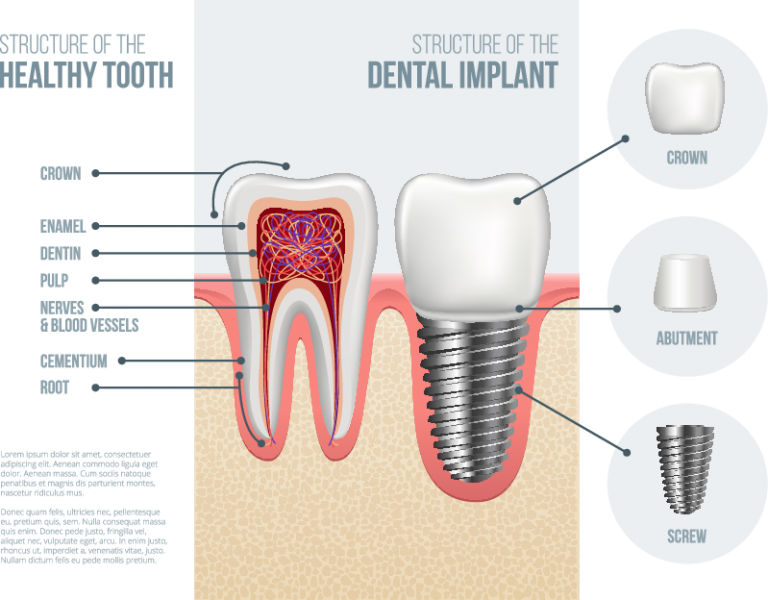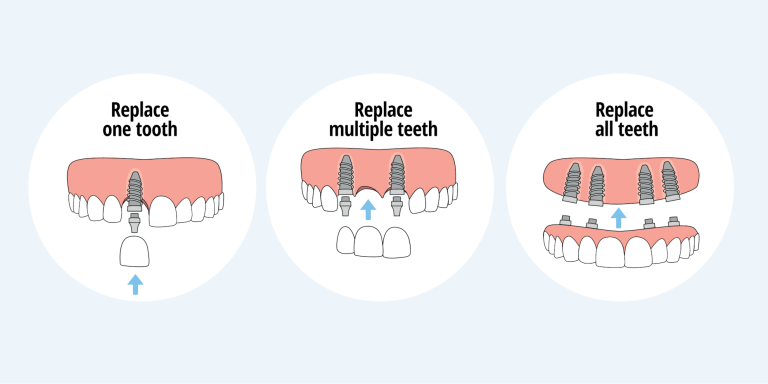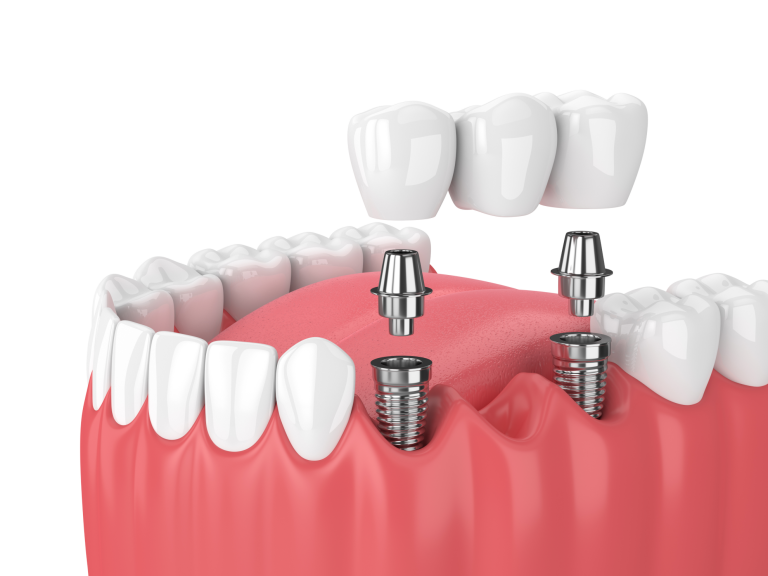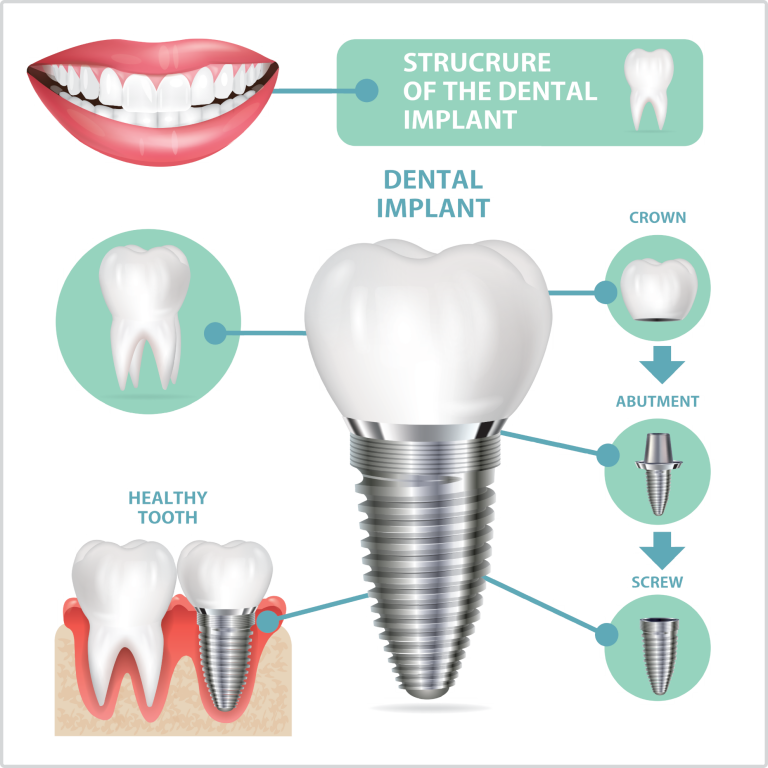Dental IMplants
What are Dental Implants?
Dental implants are fuss-free solutions to replacing missing teeth. They provide a firm foundation for artificial teeth as they are fused to the jawbone. They are usually made of titanium or ceramic and a minor surgical procedure is done to insert them into the jaw bones. They can be a one-for-one replacement for teeth or used to support a bridge or denture.
Why Dental Implants?
The benefits of choosing dental implants are many. They do not rely on existing teeth for success, and you do not need to remove them daily. Being made of biocompatible material, the body readily accepts dental implant insertion. Dental implants thus provide good support for the jawbone and for the new teeth. Furthermore, they do not decay like your natural teeth.
In certain cases, dental implants will also improve your speech, improving your quality of life and your self-image. They are the closest thing to your natural teeth.
What happens when I do not replace the gap?
The surrounding teeth may collapse into the gap. This situation will make brushing and flossing difficult. The resultant gap might cause food to trap and eventually lead to tooth decay and gum recession.
Another phenomenon is the loss of function at the area of tooth loss resulting in volume loss of the jawbone. This is caused by the atrophy of the jawbone and tissue and could affect a person’s face shape and lip position giving an aged appearance.
Dental implants are generally recommended to maintain normal function and appearance of the oral and facial region.
Who is suitable for dental implants?
You are suitable for dental implants if you fulfil the following conditions
- Fully developed jawbone
- One or more missing teeth
- Healthy gum and jawbone
- No medical conditions that will affect implant placement
- Committed to the treatment duration of several months
- Unable to wear dentures
- Want to improve speech and mastication
Procedures
During the insertion of the dental implant, the surgeon will make a small opening at your gum to prepare the bone. There will be some drilling before the placement of the dental implant. Sutures may be placed to close the gum.
The healing period after the surgery may take several months. The jawbone grows and fuses with the surface of the dental implant, providing a firm and stable base for the new artificial tooth.
Once the healing of the bone and gum is complete, a duplicate of your mouth and teeth will be made. This will be used to fabricate the crown in a laboratory and eventually fitted onto the dental implant.
Risks
Dental implant procedures are relatively safe and come with few risks.
Some of the risks include:
- Infection at the surgical site
- Injury to structures such as teeth or blood vessels
- Nerve damage causing numbness in areas on the lower jaw
- Sinus infection
- Bone fails to fuse with the dental implant – If this occurs, the dental implant is removed, and the procedure can be re-attempted at approximately three months later.
How long do they last?
Dental implants can potentially last a lifetime IF you take care of them.
You can do your part by:
- Maintaining good oral hygiene by brushing and flossing
- Seeing your dentist regularly for check-ups
- Avoiding bad dental habits like chewing on ice and hard stuff
- Cutting down on tobacco
Alternatives to Dental Implants
If you are averse to having a dental implant there are other options in the form of a dental bridge or dentures.
A dental bridge involves trimming the two adjacent teeth at each end of the gap to accommodate it.
This prosthesis is fixed onto the underlying teeth. You must make a conscious effort to clean around and under the bridge so that the teeth underneath will not decay.
A denture is an acrylic prosthesis that is removable. With dentures, the jawbone underneath can still shrink over the years resulting in ill-fitting and loose dentures. Therefore, you may have to change your denture several times.




